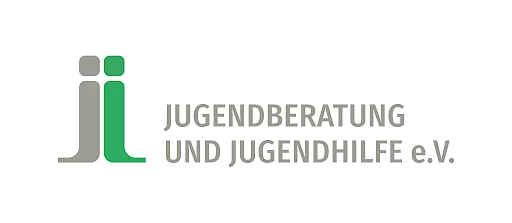Jugendberatung und Jugendhilfe e.V.
Stationary youth welfare - Parent-Child House Weitblick

Address
Am Nesselberg 3
61389 Schmitten-Hunoldstal
Contact
Tel: 06084-942330
Fax: 06084-942349
E-Mail: weitblick@jj-ev.de
Homepage: www.jj-ev.de
Opening hours / Consultation hours
- The facility is staffed 24/7, 7 days a week.
Admission enquiries can be made by telephone on:
- Thursdays from 11:30 - 15:00
or by E-Mail.
Contact person (for networking and cooperation)
- Tamara Scheidt (Diploma in Pedagogy)
- Sabine John (diploma in social science)
Services
The Eltern-Kind-Haus Weitblick is a fully inpatient youth welfare facility for the care of mothers and/or fathers with their child or children. Our mothers/fathers are responsible for the care of the child or children themselves and receive needs-oriented support from our specialised pedagogical team. The individual support aims to build up, strengthen and stabilise the parent-child bond so that the child's well-being is ensured and the child can develop optimally psychologically, physically and socially.
"early help“ Services ( 0 - 6 years )
- Birth preparation
- Postnatal gymnastics
- Baby massage
- Parenting licence
- Bonding workshop
- Hygiene and child health training
- Play circles and play instruction
- Baby food training etc.
Conceptual / Special features
The parent-child house has a four-stage care model, starting from the very intensive clearing phase to the independent living phase with the greatest possible autonomy. Depending on the care needs and available resources, the phase is determined with the responsible youth welfare office according to need.
Team / Staff members
In addition to our pedagogical staff (
- social workers
- social pedagogues
- educationalists
- Pedagogues
- Psychologists (FH, Dipl., Master)
- educators
), our team includes:
- Nurses
- Midwifes
- Cooks
- administrative staff and caretakers.
Foreign language competence / competence in the field of migration
Our staff have experience in working with refugees. There is a network of interpreters and all services can also be offered in-house in English.
Target group / eligibility criteria
Target groups:
- Expectant mothers (pregnant women after the 12th week of pregnancy),
- Mothers or fathers who have to care for a child under the age of six alone and, if applicable, also siblings.
This explicitly includes mothers, fathers, couples and children with specific stresses mentioned below:
- Mothers/fathers with a need for post-maturation
- Mothers/fathers with social and emotional support needs
- mothers/fathers with cognitive impairment or learning difficulties
- Mothers/fathers with post-traumatic stress disorders, e.g. due to violent experiences in their own childhood or a traumatic birth experience.
- Mothers/fathers with problematic (harmful, abusive, possibly dependent) substance use who are living in a stable abstinent lifestyle. Therapeutic treatment experience in an outpatient or inpatient setting as well as the willingness to undergo regular checks of drug/alcohol freedom through laboratory tests are prerequisites for admission.
- Mothers/fathers in a qualified substitution treatment with bubrenorphine, demonstrably without co-use.
- Mothers/fathers with abusive media consumption and behavioural addictions (smartphones, game consoles, computer games, etc.)
- Mothers/fathers with a migration background and associated special stresses (communication difficulties, post-traumatic stress disorders and culture-specific adaptation difficulties)
- Mothers who are threatened by domestic violence or who have stayed in a women's shelter.
- Mothers/fathers with diagnosed (ICD 10) / examples:
- Depression, possibly postpartum
- Borderline personality disorder
- Anxiety disorder
- Dependency disorder
Exclusion criteria:
- Acute psychiatric illness
- Acute, untreated dependency disorder
- acute suicidal tendencies, acute danger to self or others
- Lack of cooperation
- severe physical/mental impairments that require medical and/or nursing care and preclude independent living.
- Juvenile intensive offenders with criminal offences according to the Criminal Code
Costs / Access requirement
Admission takes place after mediation by the locally responsible youth welfare office, which also assumes the costs.
Important cooperations / cooperation partners
- Centre for Youth Counselling and Addiction Support for the Hochtaunus District
- Villa Lilly Therapy Village (inpatient rehab for addicted parents and their children)
- Clinics, rehabilitation facilities, assisted living, specialists, etc.

 Deutsch
Deutsch